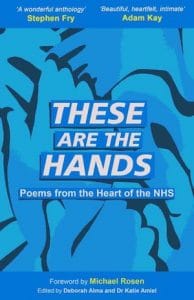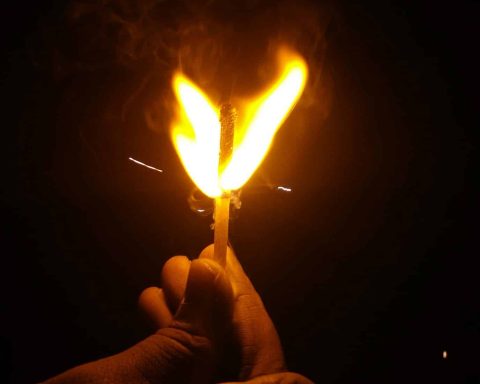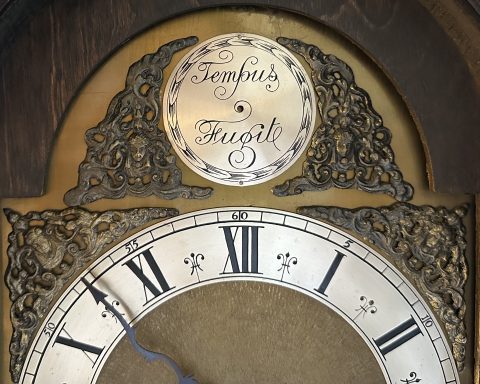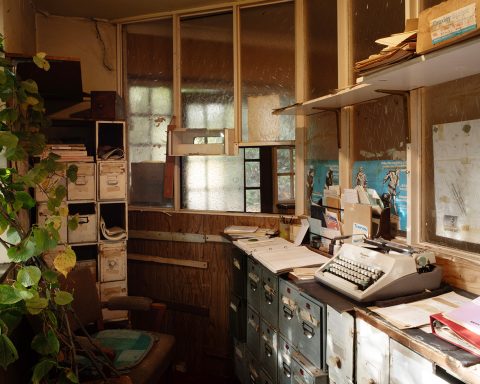 Emma Storr is a retired academic GP, now spending more time writing poetry.
Emma Storr is a retired academic GP, now spending more time writing poetry.
The publication of this new anthology of poems by NHS staff could not have come at a more apposite time. The coronavirus pandemic has highlighted the vital role of the NHS and the dedication of its staff in both community and hospital settings.
These are the Hands is the brainchild of GP Dr Katie Amiel, and the Emergency Poet Deborah Alma, well known for touring the UK in her converted ambulance and prescribing poems for therapeutic purposes. You may know Dr Amiel’s name as the founder of The Bigger Picture,° a collaborative initiative that ‘aims to improve health professional wellbeing and patient care by offering a wider perspective including the arts and humanities’. This anthology provides ample opportunity to do just that by publishing over 120 poems that are accessible and engaging. It also gives voice to ‘unseen and unsung’ people in the NHS such as clerical, library and managerial staff, as well as clinicians.
It also gives voice to ‘unseen and unsung’ people in the NHS such as clerical, library and managerial staff.
While many of the poems in this anthology are intensely moving, not every page will make you reach for the tissues. There is plenty of humour and cool observation of NHS procedures, particularly in the section titled Unsung and Unseen. Gondoliers, by midwife Anna Bosanquet, is a triumphant celebration of hospital porters:
They have big muscles and sing beautifully while balancing the beds with professional splendour.
 And medical laboratory assistant Sarah L. Dixon’s poem on the facing page, Media Room, is a visual feast of colour and sound as she loads up the autoclave and fills the preparator with ‘bottled blood and small secret vials’. Her matter-of-fact tone and delight in naming different substances that tease the tongue such as Selenite-F broth, Mackonkey and Mannitol make this poem delicious to read out loud. We also rarely hear poetry written on this subject.
And medical laboratory assistant Sarah L. Dixon’s poem on the facing page, Media Room, is a visual feast of colour and sound as she loads up the autoclave and fills the preparator with ‘bottled blood and small secret vials’. Her matter-of-fact tone and delight in naming different substances that tease the tongue such as Selenite-F broth, Mackonkey and Mannitol make this poem delicious to read out loud. We also rarely hear poetry written on this subject.
Several GPs have contributed to the anthology. I enjoyed the humour of Neil Alexander Douglas’s When I came to visit you in which the patient’s stuffed dog is still and welcoming, unlike the ‘muscled thud’ dripping saliva ‘like wet elastic’ that greets him on other visits. Both David Blane’s What more could we have done? and Wendy-Jane Walton’s Home Visit succinctly capture the different feelings that can accompany the death of a patient. In the first, the rhyme scheme and repetition emphasise the guilt the doctor experiences, whereas Walton’s poem deftly reminds us that patients have the right to die at home and we should respect their wishes.
These are the Hands is a celebration of ‘our shared humanity’, as described by its editors. Dr Amiel and Deborah Alma also emphasise that the collection provides a stark reminder of the human cost of trying to offer compassionate care in a system that is underfunded and understaffed and the importance of showing the same compassion and support to its employees. This has become even more evident in the current crisis. All proceeds from the sale of These are the Hands are going to NHS Charities Together. Do order a copy° for your surgery.
These are the Hands: Poems from the Heart of the NHS
Fairacre Press 2020 £9.99
www.fairacrepress.co.uk
Featured photo by Clay Banks on Unsplash







[…] Here is a lovely and accurate review of These Are The Hands NHS poetry anthology […]
[…] Giles Dawnay is an ST2 GP in Hereford who is a published poet and author of work which can be found at http://www.gilesdawnay.com. His poem ‘Seasons’ was recently published° in the NHS Poetry Anthology ‘These are the Hands’.° […]
[…] ‘Accessible and engaging. While many of the poems in this anthology are intensely moving, there is plenty of humour’ – BJGP (British Journal of General Practice) – full review here […]